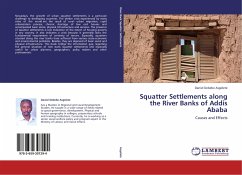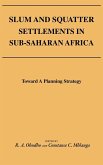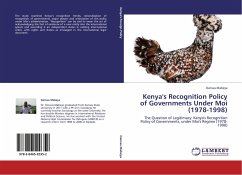Large cities in Middle Eastern countries, like much of the world, are characterized by rapid urban growth. Urbanization and urban growth often result in the proliferation of squatter settlements on the urban fringe. While squatter settlements provide a relief valve from pressure for housing very low income residents, they also create a complex array of physical, social, economic problems. In order to better understand how Middle Eastern governments can more effectively respond to squatter settlements, this study adopts an analytical approach and case study method to assess two such settlements in Egypt. Insight is gained by analyzing both the positive and negative outcomes of the Egyptian government s response to squatter settlements. These insights are used to propose standards for scatter settlements that address the physical, social and economic needs of residents while addressing the problems posed by such settlements.
Bitte wählen Sie Ihr Anliegen aus.
Rechnungen
Retourenschein anfordern
Bestellstatus
Storno








